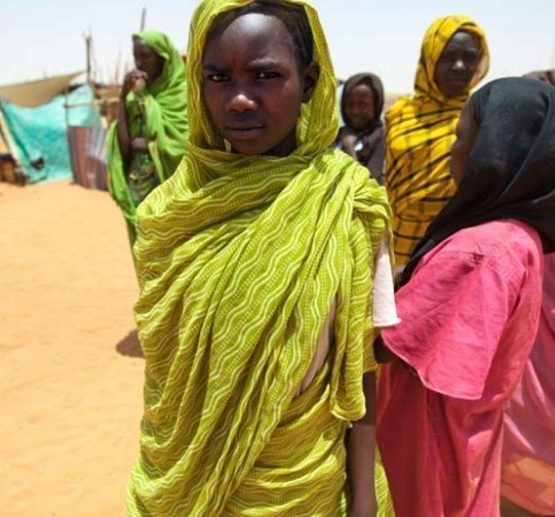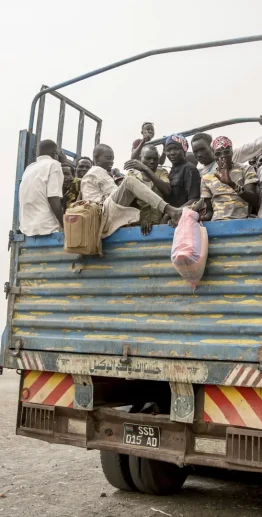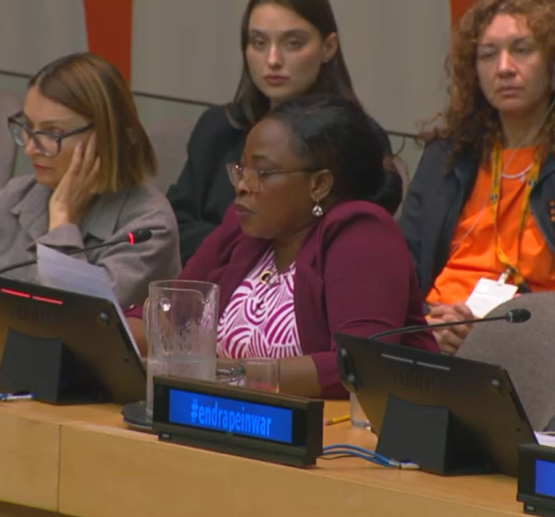Impacted by the Holocaust, Campaign Intern Works to End Darfur Genocide
Carla Ruas
On April 30, 2006, 50,000 people gathered at the National Mall, in Washington, DC, to participate in the “Save Darfur” rally, an event planned to mobilize support for the victims of the Darfur genocide. In the crowd were activists, politicians, and celebrities, as well as an observant 10-year-old named Adeena Eisen. “I remember realizing that there was something horrible happening in the world,” says Eisen, who is now an intern at DWAG; “And that it was important to speak out.”
Eisen was born and raised in the Washington, DC area, as part of a traditional Jewish community that was deeply impacted by the Holocaust. They vowed to make sure that such an atrocity never took place in the world again. Eisen took the vow to heart and continues to strive for it in her life and career.
Family History
In the early 1930’s, antisemitism was sweeping through all aspects of life in Poland. Eisen’s paternal grandfather’s family decided to leave the country in search of better opportunities. They found a new home in Canada. In the following years, they watched, horrified, as Nazis took over Europe and as discriminatory measures against Jews turned into genocide. By the end of the Holocaust, most of their extended family in Poland had perished.
The family eventually moved to the United States, where Robert Eisen was born. Marked by his family’s history, he went on to study Judaism with a broader interest in the relationship between religion, peace and violence, and is now Chair of the Department of Religion at George Washington University (GWU). He married Naomi Eisen, a dedicated Grant Writer for the Montgomery Housing partnership – an organization that works to provide affordable housing to low-income families in Montgomery County, Maryland. Adeena is the daughter of Robert and Naomi.
Growing up, the young Eisen grappled to understand how such horrific acts could be perpetrated against her ancestors. “It has been hard,” she admits. “But at the same time, it has shaped me, not only religiously, but also in the way that I look at other atrocities happening around the world and how it impacts people’s lives.”
Taking action
Eisen is currently an undergraduate student at George Washington University (GWU), where she focuses on International Relations and Philosophy. She chose these fields because she believes that they complement each other – while one covers politics and foreign affairs, the other helps one to think critically and make good arguments. “My goal is to use them to understand what kind of values we should strive for in the world.”
In January, Eisen also began an internship at DWAG. The organization appealed to her because it works to end modern-day genocide and because it strives to give affected communities and women a voice. The genocide in Darfur has been ongoing for thirteen years, and women and girls are systematically raped by Sudanese army men and militia. However, peace deals tend to exclude women from the negotiating table, and justice and accountability for such acts have not been considered a priority. “I really want to change that, and I feel that DWAG really cares about it,” Eisen says.
As part of her work at DWAG, she is organizing and mobilizing the Rapid Response Network, a group of volunteers around the world that help DWAG achieve its goals by engaging in simple actions. Rapid Responders often call their legislators to ask for their support, educate their community, mobilize friends and family to sign petitions and share DWAG’s content on social media to bring attention and demand effective response to genocide in Darfur.
Eisen’s goal is to draw more attention to DWAG’s cause. Attention for the Darfur genocide has dwindled, in spite of increasing violence against civilians on the ground. “I remember when Darfur was a really big deal but soon that attention faded and today I want to see that kind of attention and care from individuals, students, activist, and policy makers again,” she says. “I want to see the kind of mobilization that I saw in that rally eleven years ago.”



